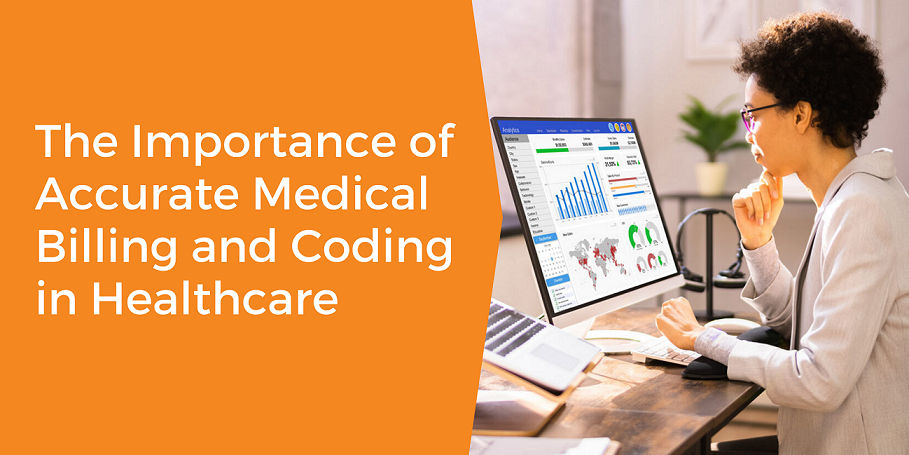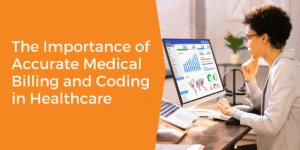Medical billing and coding are essential processes that keep the healthcare system running smoothly. They translate patient diagnoses, treatments, and services into standardized codes, which are used for insurance claims, record keeping, and data analysis. Accuracy in this process is critical for both providers and patients.
These are few steps to follow:
1. Ensures Proper Payment –
Correct coding allows healthcare providers to receive the right reimbursement from insurance companies and government programs. Errors can cause claim denials, payment delays or even financial losses.
2. Maintains Patient Records
Each medical code becomes part of a patient’s health record. Accurate coding ensures a complete and reliable medical history, which supports continuity of care and better decision-making by doctors.
3. Prevents Legal and Compliance Issues
The Healthcare industry follows strict rules. Inaccurate billing and coding can lead to audits, penalties or legal action. Following standard coding systems like ICD-10 and CPT keeps organizations compliant.
4. Improves Efficiency
Accurate billing reduces errors, saves time and avoids re-submitting claims. This efficiency lets healthcare staff focus more on patient care rather than fixing administrative mistakes.
5. Helps Research and Public Health
Accurate data from coding is used for research, disease tracking, and policy decisions. Reliable coding helps identify health trends and allocate resources where they are most needed.
6. Increase Patient Satisfaction
When billing is accurate, patients avoid unnecessary charges or disputes. This builds trust and improves their overall healthcare experience.
- National American Health Care Limited
- 469-388-7027
- info@thenahl.com


